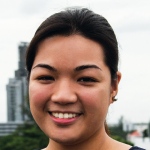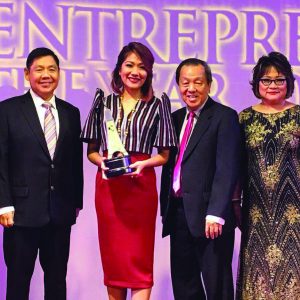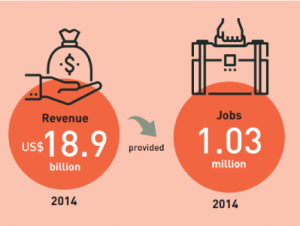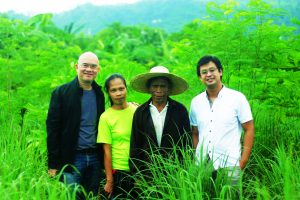By Jinky Tuliao, Zen Bin and Vivienne Zerrudo
“Millennials”—broadly defined as those born between 1980 and 2000— are a dynamic driving force behind any country’s economic progress, but particularly so in the Philippines. Making up about 50 per cent of the national population, Philippine millennials are mainly employed in micro, small and medium enterprises (MSMEs), which in turn account for over 99 per cent of all local businesses.1
However, despite an IT-BPO2 sector driven boost in economic productivity, the Philippines still faces many social challenges. These include excessive corruption, high unemployment rates, and a quarter of the population still living below the poverty line.3 And since the benefits of economic growth have failed to extend to all corners of society, especially the poorest of the poor, millennials are increasingly taking up roles to improve the lives of impoverished communities. In a 32-country survey conducted by Viacom, it was found that Philippine millennials were the happiest and “least stressed” in Asia.4 K
Known for being highly motivated and purpose-driven, this group features largely in the country’s growing labour pool of impact-driven entrepreneurs and social enterprises. A bustling social sector is the result—and this has not only helped to create wealth and jobs, but also contributes innovative solutions towards addressing social challenges.
Here, we feature three Philippine millennial entrepreneurs who have previously worked with IIX-Shujog. 5 Through their work, they have displayed an unwavering commitment towards challenging conventions and creating new paradigms that positively impact the nation’s social and economic development.
|
Anya Lim, Founder of Anthill Fabric Gallery
Anya Lim, second from left (Source: ANTHILL Fabric Gallery’s Facebook page) Growing up in a family that ran a fabric business, Anya Lim, 37, is no stranger to the world of garments and weaving. Over the years, she observed how the traditional art of weaving was dying out as a profession, and grew concerned about its future. On a 2009 trip to Abra, she also observed that most fabric weavers were elderly folk and recognised that—with the younger generation of Filipinos migrating to bigger cities for jobs—the talent pool in this area was fast diminishing. While Anya was eager to revive the country’s interest in traditional weaving, she also saw that its product—handwoven fabric—had become outdated and undervalued in modern Philippine society. This led her to establish ANTHILL Fabric Gallery,6 a Cebu-based social enterprise, to promote weaving as a modern and viable commercial activity. ANTHILL converges various groups of weavers, sewers, signers, fabric communities and designers to transform Philippine hand-loomed fabrics into contemporary apparel and non-apparel items. Since 2009, ANTHILL’s activities have supported three partner communities, and impacted the lives of over 100 young women, who are now able to weave for an income to support their families. To ensure ANTHILL’s sustainability and growth, Anya applied to IIX’s Impact Accelerator7 in 2015 and was one of the four finalists to receive technical assistance and connection to potential investors. The social enterprise also received complimentary impact assessment through Shujog’s ACTS Program.8 Most recently, Anya was recognised as the 2016 Young Entrepreneur of the Year9 by the Cebu Chamber of Commerce and Industry (CCCI) during the Grand Chamber Awards (GCA) in Cebu, Philippines. That same year, she received a special prize from the Asia-Pacific Economic Cooperation (APEC) Business Efficiency and Success Target Awards in Lima, Peru, in recognition of her achievements as a next-generation female entrepreneur. |
|
Zhihan Lee, Co-Founder of Bagosphere
At college, Zhihan Lee, 31, led student teams to community service projects in rural villages and schools in Laos and Thailand. After witnessing many instances of rural poverty during his travels, he wanted to find a way to use his skills and knowledge to contribute to long-term solutions. At the same time, his internship experiences in Stockholm and India also exposed Zhihan to many social entrepreneurs, and he saw how they successfully employed sound business models to tackle social challenges. In late 2010, Zhihan made like-minded friends in Ivan Lau and Ellwyn Tan, both 31, and they began working on a business plan together. After conducting a market study, talking to a few call centres, and discussing their plans with the local government, the trio co-founded Bagosphere,10 a vocational training school to help out-of-school youths gain fast employment in the burgeoning IT-BPO sector. As of 2014, the sector generated US$18.9 billion in revenue and provided 1.03 million jobs, and is expected to sustain an annual growth rate of 15 to 18 per cent, according to IT-Business Process Association of the Philippines (IT-BPAP).11 In 2012, with assistance from IIX, Bagosphere raised a seed round of capital with Kickstart Ventures and other impact investors from Singapore and Manila. |
|
Jamir Ocampo, Founder of Kapwa Greens12
Jamir Ocampo, extreme right (Source: Tsaa Laya’s Facebook page) Jamir Ocampo, 31, was growing restless with the seemingly intractable issues of displaced, urban poor communities. One of them—the National Housing Authority (NHA) Site 2—was a ghost town of neglected children and women. The men lived and worked in cities far away in order to provide for the family, while their wives who remained, despite possessing suitable skillsets for factory and administrative work, were unproductive. Wanting to harness these women’s potential, Jamir partnered with the community’s caretakers, the Don Bosco Fathers and the Ayala Foundation, to transform three housing units into a tea-processing plant. Called Kapwa Greens, this impact enterprise uses organic local herbs, fruits and spices to produce premium tea collections that are uniquely Filipino. In 2014, Ocampo launched Tsaa Laya, an exquisite collection of teas. This was the fruit of a decade’s labour by a community of mothers from Laguna who fastidiously tended their herbal gardens to produce this premium tea collection. The next year, Kapwa Greens won its finalist position with IIX’s Impact Accelerator,13 which will help the company expand its operations and positively influence local Philippine communities. |
Though in the Philippines impact entrepreneurship is in its early stages of development, it is a vibrant and growing community—consisting of passionate and brave millennials who bring about innovative solutions to social problems—that creates jobs and empowers people to work towards improving the lives of those in need.
Notes
1 Department of Trade and Industry, Philippines, “2014 MSME statistics”, at http://www.dti.gov.ph/dti/index.php/2014-04-02-03-40-26/news-room/179-workshop-on-market-access-for-smes-set
2 IT-BPO stands for information technology and business process outsourcing.
3 Philippine Statistics Authority, “Labor Force Survey”, at https://psa.gov.ph/statistics/survey/labor-force
4 Christian Kurz, “In the Philippines, Millennials Demonstrate Resilient Spirit”, Blog.Viacom, at http://blog.viacom.com/2013/12/in-the-philippines-millennials-demonstrate-resilient-spirit
5 IIX bridges the gap between finance and development, connecting capital with greater purpose and driving investments for social good. As a leading pioneer of impact investing in Asia, it builds pathways to connect the Wall Streets of the world with the backstreets of underserved communities. The company strives to achieve sustainable development and equitable growth through working with investors and entrepreneurs to raise capital, empowering its stakeholders with rigorous advice and research for sound actions, and pushing impact investing from the margins to the mainstream. Shujog is IIX’s non-profit sister organisation. Its mission is to empower marginalised communities and to protect the planet’s resources by magnifying the positive impact of social innovators. It achieves this by fostering growth, maturity and market readiness of Impact Enterprises and other social innovators, in turn building the impact investing ecosystem, and enhancing capacity and knowledge management in impact investing.
6 ANTHILL stands for Alternative Nest and Trading/Training Hub for Indigenous/Ingenious Little Livelihood seekers. For more information, see https://www.youtube.com/embed/zJSDcjUa2S8
7 IIX, “Impact Accelerator”, at http://www.asiaiix.com/impactaccelerator
8 Taila Mueller, “Empower a Woman, Empower a Generation”, Impact Quarterly (November 2015), at http://www.asiaiix.com/portfolio-item/empower-woman-empower-generation
9 Anthill Fabric Instagram shot, at https://www.instagram.com/p/BHcXF9QDyS3/?taken-by=anthillfabric&hl=en
10 For more information, see https://www.youtube.com/embed/ACOTIakyHqo
11 Chris Schnabel, “PH IT-BPM Industry to Fill Demand for Health Care Outsourcing”, Rappler.com, 5 August 2015, at http://www.rappler.com/business/industries/174-outsourcing/101544-ph-itbpm-industry-health-care-outsourcing
12 For more information, see https://www.youtube.com/embed/6XTTME7wev8
13 Amy Duffuor, “First Round of Impact Accelerator Successfully Completed in the Philippines”, Impact Quarterly (November 2015), at http://www.asiaiix.com/portfolio-item/first-round-impactaccelerator-successfully-completed-philippines
 |
Jinky Tuliao is a digital media specialist, supporting both IIX and Shujog in reaching out to ecosystem partners and stakeholders on latest updates in the impact-investing field. As a globetrotting millennial, Jinky maintains her finger on the pulse of the latest Filipino trends and is a resident writer at Manillenials.com, a lifestyle and culture site for millennials and by millennials in Manila. Jinky volunteers regularly in Manila, and now in Singapore too. |
 |
Zen Bin is part of IIX’s Corporate Finance team, where he works with impact enterprises to provide technical assistance to help them scale their business and positive impact. Prior to IIX, Zen worked in the investment-banking sector, covering family-owned businesses across Southeast Asia. Zen is an architect by training, and continues to enjoy art and architecture in his free time. |
 |
Vivienne Zerrudo is part of the Research & Programmes team and supports the Shujog ACTS programme. Vivienne’s experience in the development sector started in the Philippines, spanning various roles from programme manager to fundraising consultant. Vivienne has worked with local and national organisations advocating for improved environment, education, health, children, persons with disabilities, youth and women. |











Comments